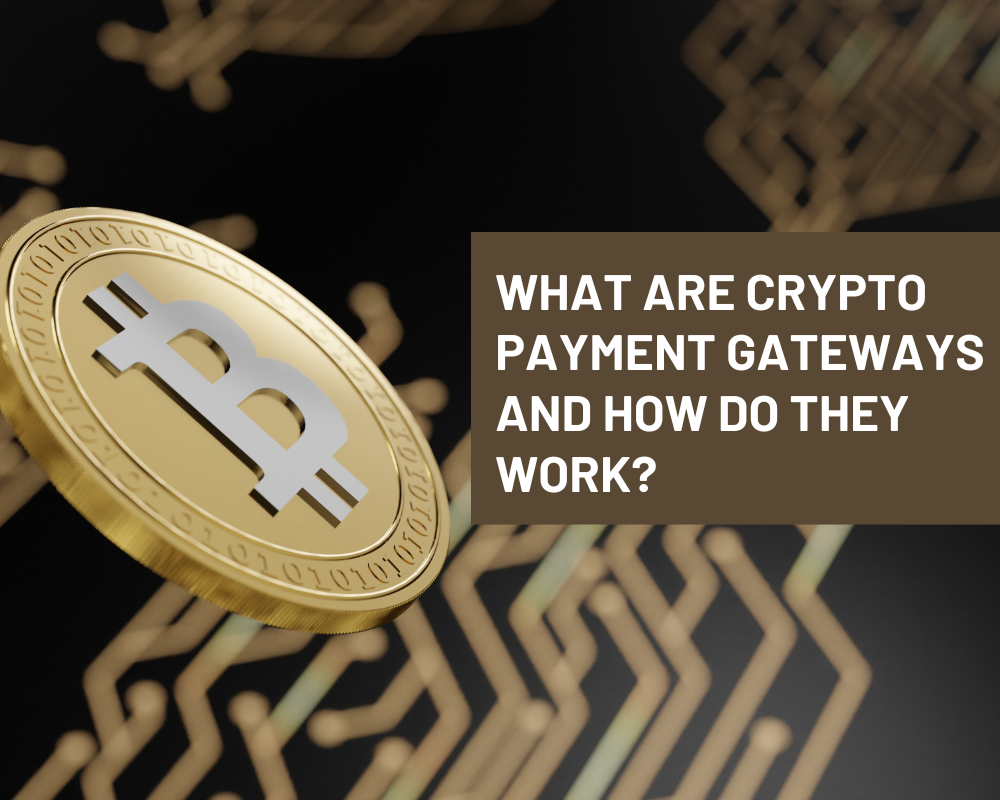As the world moves toward mass adoption of cryptocurrencies and blockchain technology, more and more users are looking for easy ways to convert their fiat currencies to cryptocurrencies and vice versa. Also, as cryptocurrency becomes accepted as a legal tender, users can now pay directly using cryptocurrencies via cards, apps, etc. To accept these payments as crypto or fiat, the merchant stores need a payment gateway, such as a traditional gateway, but catering to digital currencies.
This is where a crypto payment gateway comes in as a payment processor that helps in seamless conversion between fiat and crypto. These crypto payment gateways act as the foundation layer for the entire cryptocurrency ecosystem. It helps convert fiat to crypto or crypto to fiat and enables seamless payments between users and businesses.
Today, we will talk about crypto payment gateways to answer a few burning questions, such as “How does a cryptocurrency payment gateway work?”, “Do I accept payments with cryptocurrency?”, “Which payment gateway is best for cryptocurrencies?” and so on.
What is a Crypto Payment Gateway?
A cryptocurrency payment gateway acts as a payment processor for cryptocurrencies or digital currencies and operates similarly to any traditional payment gateway. The biggest difference between a crypto and a traditional gateway lies in the use, as crypto gateways enable users to accept digital payments and receive fiat currency immediately in exchange.
As the world gradually starts accepting cryptocurrencies as a legitimate payment method, a crypto payment gateway helps remove any reservations or uncertainties a merchant might have about digital currencies while allowing them to accept more payment options.
Earlier, crypto wallets were widely used to accept and transfer cryptocurrencies, which are still used extensively. However, a crypto payment gateway simplifies the process by automatically accepting and transferring funds to the user’s wallet or bank account as cryptocurrencies or fiat currencies, depending on the merchant’s choice.
How does a Cryptocurrency Payment Gateway Work?
Crypto payment gateways are crypto projects and companies that take on the perceived risk of crypto transactions using their own wallets to facilitate transactions between merchants and their customers. Let’s take a close look at how the cryptocurrency payment gateway works.
Payment Flow
The payment process unfolds as follows:
- Your customer pays with cryptocurrency during checkout (whether in-store, online, or in-app).
- They remit an amount equivalent to the digital currency’s current fair market value at the time of the transaction.
- The cryptocurrency payment service promptly converts the payment into your preferred currency.
- The funds are credited to your account with the service provider, then transferred to your designated bank account according to the intervals specified in your service agreement.
This process remains transparent as you need not concern yourself with cryptocurrencies; your cryptocurrency service provider ensures the appropriate funds are deposited into your account.
Note – Prior to setting up an account with a gateway, it’s important to review your country’s cryptocurrency regulations. These gateways operate globally, and many jurisdictions are establishing new laws governing digital currency usage.
Fees
The provider utilizes a cryptocurrency wallet to facilitate transfers. If the currency incorporates a payment system, the provider incurs fees levied by the transaction validators within the currency network.
Transaction validators authenticate blocks and transactions within the blockchain. In return for their energy consumption and computational efforts, they receive incremental payments in cryptocurrency for the transactions they validate.
These fees are passed on to you by the provider, along with their service charges, to sustain their operations and service offerings.
Advantages and Disadvantages of Payment Gateways?
Cryptocurrency is inherently decentralized and offers anonymity, facilitating seamless exchanges between parties. However, some merchants may feel hesitant about accepting digital currency due to unfamiliarity or skepticism toward the system. Understanding the advantages and disadvantages of payment gateways is crucial for making informed decisions regarding digital currency acceptance.
Advantages
- Enhanced transparency: Payment gateways maintain transparency regarding the identities of transacting parties while accommodating customer preferences for anonymity.
- Customer support: Gateways provide assistance in case of payment-related issues, offering a reliable point of contact.
- Global accessibility: Merchants can accept payments from worldwide locations in various cryptocurrencies supported by the provider.
- Secure fund transfer: Funds are deposited into the merchant’s account with the provider, ensuring secure and timely transfers.
- Simplified process: Merchants need not delve into cryptocurrency intricacies, as gateways handle currency conversion and transaction complexities.
- Risk mitigation: Gateways mitigate volatility risk by compensating merchants at the market rate during transaction verification, reducing potential value loss.
Disadvantages
- Third-party dependency: Payment gateways introduce reliance on third-party services, counter to the decentralized nature of cryptocurrencies.
- Service reliability: Merchants depend on gateway providers to maintain uninterrupted services across different time zones, posing operational risks.
- Marketing pressure: Gateway providers may employ aggressive marketing tactics, potentially creating an impression of necessity for their services.
- Transaction fees: Utilizing a cryptocurrency wallet incurs minimal fees, whereas payment gateways impose higher transaction charges.
- Security vulnerabilities: In case of a gateway breach, merchants risk losing funds held in their provider account during transfer processes.
Best Cryptocurrency Payment Gateways
Now that we know everything you need to know about crypto payment gateways, let’s also take a look at a few of the best cryptocurrency payment gateways.
1. Scallop
Scallop is a licensed and regulated banking institution that offers a comprehensive suite of innovative banking products. These products include simplified solutions for crypto banking such as accounts, cards, a crypto exchange, and a remittance platform. Additionally, Scallop acts as a crypto payment gateway with the help of Scallop Ramp, which offers an innovative solution, simplifying the buying and selling process using local fiat currency. Unlike several crypto exchanges, Scallop offers a convenient and comprehensive payment system with direct on/off ramp capabilities.
2. B2BinPay
B2BinPay stands out as a premier cryptocurrency processing solution tailored for businesses and corporations. This platform excels in delivering swift, secure, and dependable services for storing, transferring, receiving, and accepting digital currencies worldwide. Notably, it facilitates cross-border transactions at a fraction of the conventional gateway fees, devoid of any concealed or recurring charges. B2BinPay empowers users with real-time balance updates, comprehensive transaction histories, and activity logs. With support for over 800 tokens, automatic withdrawals, and robust customer checkout security, it emerges as a frontrunner in enterprise payment solutions.
Read: The Complete IDO Guide for Crypto Startups: Launching an IDO
3. DePay
DePay harnesses the capabilities of DeFi and Web3 technologies to furnish a cutting-edge payment infrastructure facilitating blockchain-based transactions. As part of its transaction mechanism, DePay seamlessly converts tokens, streamlining their usability for merchants. By instantly rendering received payments accessible in real time, DePay enhances cash flow for merchants and developers alike. Leveraging DeFi, DePay significantly expands the spectrum of accepted tokens, enabling merchants to embrace a diverse array of digital assets.
Conclusion
Cryptocurrency advocates decentralization in financial transactions, a concept met with varying degrees of acceptance. While some embrace the change, others may find it challenging to comprehend in a traditional asset-based economy. Cryptocurrency gateways offer a solution to alleviate concerns surrounding decentralized and unregulated value sources, yet their utilization remains optional.
For business owners well-versed in cryptocurrency operations, gateway services may not be necessary. However, given the prevalence of small businesses, not all proprietors may possess adequate understanding or trust in digital currency. In such cases, intermediaries can bridge the gap by enabling immediate fiat currency exchanges, catering to diverse business preferences while accommodating customer payment choices.
Author’s Bio:
Isabella Wilson stands out as a premier content creator with expertise in blockchain, crypto bank, and cutting-edge technology sectors. With over ten years of experience in the financial technology domain, she has a distinctive knack for simplifying intricate topics. Her insightful and engaging blogs and articles make challenging subjects accessible and intriguing to a wide range of readers.



